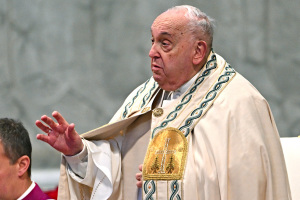Judge Refuses to Lift Block on Embryonic Stem Cell Funding
A federal judge on Tuesday rejected the Obama administration's appeal to stay an order blocking the federal funding of embryonic stem cell research.
Judge Royce Lamberth said the defendants are "incorrect" in many of their arguments in the request for a stay while the case is appealed. He wrote in the court order that granting a stay would "flout the will of Congress" by violating the Dickey-Wicker Amendment – a 1996 law that prohibits federal funding for research that involves destruction or damage to a human embryo.
"Congress remains perfectly free to amend or revise the statute (Dickey-Wicker Amendment). This court is not free to do so," wrote Lamberth. "It is well-established that '[i]t is in the public interest for courts to carry out the will of Congress and for an agency to implement properly the statute it administers.'"
In late August, Lamberth issued a preliminary injunction that stopped the National Institutes of Health from funding human embryonic stem cell research. His decision was based on the fact that the funding violated the Dickey-Wicker Amendment.
A stunned Obama administration appealed the ruling Aug. 31, arguing that even a short break in funding could scrap millions of dollars worth of research projects that have the potential to cure many hard-to-treat diseases. Officials also assured that no federal money would be used to destroy embryos and thus no law broken.
Notably, however, the process of harvesting the embryonic stem cells requires the destruction of embryos – the main reason why opponents of the controversial research liken the research to abortion.
Opponents also argue that ethical and successful alternatives to the controversial research exist, such as adult stem cell research or induced pluripotent stem cell research.
To date, adult stem cell research has helped treat more than 80 diseases while embryonic stem cell has treated none.
Still, supporters of the controversial research emphasize that embryonic stem cells can differentiate into almost any tissue and therefore have the potential to treat a wide range of diseases.
President Obama has made clear that supporting embryonic stem cell research is one of his top priorities.
Shortly after taking office, Obama issued an executive order in March 2009 that repealed the restriction that former President George W. Bush placed on federal funding for embryonic stem cell research. Obama in his inaugural address said he would "restore science to its rightful place" – a statement suggesting greater freedom and financial support for embryonic stem cell research.
The Justice Department said Tuesday it plans to appeal Lamberth's ruling.





























